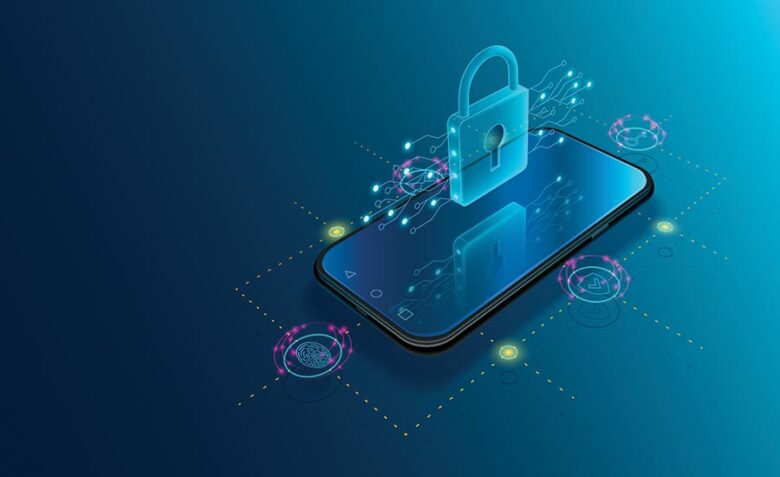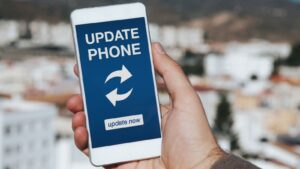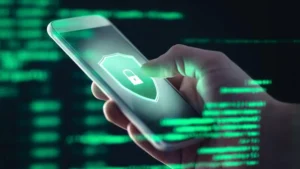In this digital world, protecting your phone data from hackers is more important than ever. Our computers are more than just a way to talk to each other; they are also our tools. They also store personal and important data about us. Our phones contain a wealth of information that can be used against us if not properly protected. This includes private chats, photos, and banking details. When it comes to protecting your mobile data, it is important to understand and use security steps as online threats become more intelligent.
1. Be Aware of the Risks
Hackers use various methods to gain access to your phone data without your permission. They can use bad software, fake attacks, or exploit vulnerabilities in software and operating systems. The main goal is to obtain private data such as passwords, banking details, and private notes. The first thing you can do to protect your mobile data is to be aware of the risks.
2. Keep Your Software Up to date
Keeping your apps up to date is one of the best ways to keep your mobile data safe. Operating system and application updates are sent out regularly to fix bugs and security holes. If you don’t install these fixes, known risks can find their way onto your device. Setting your computer to receive changes automatically ensures that you always have the latest security patches and reduces the chance of hackers attacking you with old software.
3. Create a Unique and Strong Password
Passwords are your first line of defense against people you shouldn’t be using. It’s important to create strong passwords for all accounts. Don’t use easy-to-understand information like dates or common words. Choose a combination of letters, numbers, and special characters. To make complex passwords secure and memorable, you may want to use a reputable password manager. This practice not only makes things more secure but also makes it easier to manage multiple accounts.
4. Make Sure Two-factor Authentication Works
Two-factor authentication (2FA) makes your account more secure because it requires you to prove your identity with something other than a password. This could be a fingerprint check, a code sent to your phone, or an identification app. Even if your password is stolen, 2FA can help keep your account safe and prevent others from accessing it. Most major services and apps offer two-factor authentication, so make sure to enable it if possible.
5. Avoiding Public Wi-Fi for Sensitive Transactions
Usually, public Wi-Fi networks, like those in airports and coffee shops, are not secure and are easier for hackers to access. If you need to do something personal, like banking or shopping online, don’t use public Wi-Fi. If you must use public Wi-Fi, you may want to use a virtual private network (VPN) to protect your information from people who might be snooping on your link. A VPN sends your data through a special path, making it harder for hackers to access or steal your data.
6. Be Careful when Granting Permissions to Apps
Mobile apps often ask for different permissions to view different parts of the device and information. Apps require certain permissions to run, but other permissions can be excessive or restrictive. Double-check the permissions each app requires and determine if they are being used in a way that requires them. Don’t install apps from websites you don’t know or trust, as they can pose a risk to your security. Regularly review and change the application’s settings to keep your data safe.
7. Set up and Use Security Software
Installing reliable security software on your phone or tablet can add an extra layer of defense against malware, viruses, and other threats. Look for antivirus and malware protection apps that scan and protect you in real-time. You can use these tools to find and remove malicious software before it gains access to your data. Run regular security scans and keep your software up to date to protect yourself from new risks.
8. Beware of Phishing Scams
Hackers use phishing scams to trick you into giving them private information, such as your login details or banking information. These scams usually come in the form of emails, text messages, or websites that look legitimate but are trying to steal your information. Be careful when clicking on links or providing personal information, especially if the request seems strange or unexpected. Before you respond or enter private information, make sure the source is authentic.
9. How to Keep Your Lock Screen Secure
A secure lock screen is one of the most important parts of protecting your mobile information. To prevent others from accessing your device without your permission, use a strong PIN, password, or biometric lock (such as palm or face recognition). Don’t use codes or patterns that are easy to understand or can be easily bypassed. To make things more secure, you may want to enable the feature that automatically locks your device after a period of inactivity.
10. Back up Data Regularly
Backing up your mobile data regularly ensures that you have copies of important files in case you lose them, your device gets stolen, or it gets hacked. You can use cloud storage or external storage to back up photos, emails, and other important information. Keeping your backups up to date not only allows you to recover your data in the event of a security breach but also gives you peace of mind that your data is safe.
Conclusion
All in all, protecting your mobile data from hackers requires vigilance, action, and staying informed. You can protect your data and reduce the risk of a data breach by understanding the risks, keeping your software up to date, using strong passwords, enabling two-factor authentication, and taking other security-related measures. Remember, keeping your phone secure is an ongoing process. Staying vigilant and informed can help protect your data in an ever-changing digital world.
FAQs
1. Why is it important to protect the security of mobile phone information?
Protecting your mobile data is important because smartphones store a lot of private data, such as images, personal texts, and banking information. If this data is lost or stolen, identity theft, financial losses, and privacy breaches can occur.
2. How to keep your phone’s software up to date?
Change your device settings regularly to keep your mobile software up to date. This ensures that the latest security patches and fixes are automatically applied to your operating system and applications.
3. What is a strong and secure password?
A strong password should contain letters (upper and lower case), numbers, and special characters. Do not use easily understood information, such as dates or common words. Using a password generator, you can create strong passwords and keep them secure.
4. What is two-factor authentication (2FA) and how does it work?
Two-factor authentication (2FA) makes things more secure by requiring more than just login credentials to prove your identity. This can be a physical data set, a code sent to your phone, or an identification app. It helps keep your account safe, even if someone figures out your password.
5. Is it safe to use public Wi-Fi to do business online?
Hackers can often gain access to public Wi-Fi networks because they are less secure. If you need to do something important, don’t use public Wi-Fi. If necessary, use a virtual private network (VPN) to protect your data and secure your connection.
6. How do I change the permissions of apps on my phone?
To change an app’s permissions, go to your device’s settings and look at the permissions that each app requires. Change or remove permissions that seem unnecessary or extra to the application’s functioning.




